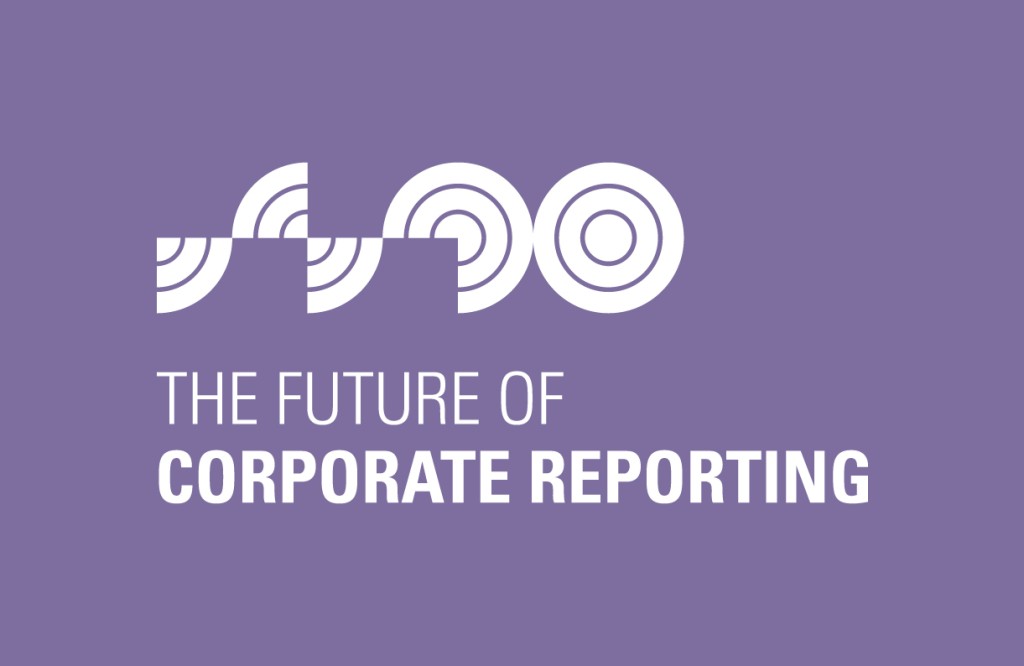
Unearthing the Corporate Reporting Landscape: An Interview with Eelco Van der Enden, CEO of GRI
Eelco van der Enden, the CEO of Global Reporting Initiative (GRI), has a wealth of experience in financial and sustainability senior management roles. What are his insights on the rapidly developing corporate reporting landscape? Learn more in this exclusive interview about Van der Enden's vision for GRI and how he aims to drive global alignment to reduce cost of compliance for businesses.
Who is Eelco van der Enden?
Eelco van der Enden was interviewed about his view on the corporate reporting landscape. As CEO of the Global Reporting Initiative (GRI), Laura Wevers from Intire was curious what insights and perceptions he has on the vastly developing sustainability reporting (framework) landscape as such. Van der Enden has been a member of GRI’s board of directors since 2020, and takes on the organization’s CEO role after 14 years at global professional services company PwC, where he most recently served as the firm’s global ESG Tax & Legal Services platform leader. Starting in his new role in January 2022, he brings more than 20 years of experience in financial and sustainability senior management roles.
Moreover, Eelco was one of our key note speakers during the 10th edition of The Future of Corporate Reporting (TFOCR). We hope this interview gives some more insights into his views on the corporate reporting landscape. You can watch his session via the button.
Without further ado, let’s dive into our questions to Eelco van der Enden.
What is your goal for the coming year (and beyond) to achieve at GRI?
An important goal would be that GRI is anchored along with ISSB globally as a reporting framework. Namely, a global comprehensive baseline. This ensures that financially relevant information and impact relevant information is equal on a global basis, so that you have comparable data in the market based on which investors and other stakeholders can make their (investing) decisions. In addition, one global standard ensures that auditors can control the information reported more easily. That in turn should help against greenwashing and other abuses. Ultimately, if you have such a global baseline, it will also reduce the cost of compliance for business.
On the other hand – although this goal seems to have already been succeeded – I strive for alignment in GRI and the new Corporate Sustainability Reporting Directive (CSRD). A goal of mine is that the essence of the new reporting standards (ESRS) under the CSRD are in line with the GRI. That goal is set primarily so that companies that have invested in their GRI reporting are already largely prepared for the ESRS. The criteria when you are required to comply with the CSRD are when you tick off 2 of the 3 following criteria: (1) when you have more than 250 employees, (2) a turnover of 40 million or (3) balance sheet total of 20 million. That’s between 50 and 55 thousand companies. That’s huge, so naturally a very important and significant development we wish to move along with.
You’re talking about a global comprehensive baseline, to continue on that note, will GRI be further aligned with IFRS and ESRS, to arrive at 1 global standard for accounting?
No, that is not going to happen, and that has to do with America in the first place. America already does not follow the IFRS; they have their own accounting standards. On top of that, it will be impossible to develop an accounting standard that can be used by every country. A country has its own mandate, which can be differentiating pre country and determined by local regulators. You can only get a real global standard if those mandates are broken down from its core. On top of that, those mandates are often only monetary. A global standard should also include an impact side. I don’t see that happening yet because of political reasons. Not only America is going its own way, but China and Japan have already announced that they are going to develop their own standards likewise.
What we can do is try to make them as similar as possible, I do believe in that. So, a global standard? Short answer: no. But you will see that the standards will become increasingly similar and that the differences between the standards will be minimized.
Same on the definitions used in country-by-country reporting, total tax contribution, fair share etc. How do you foresee the alignment in the definitions?
There are already discussions in several jurisdictions about the question: should we make GRI-207 a legal requirement. I think that comparability in particular is incredibly important. When it comes to what the impact is of your tax behavior, you need a different palette than just total tax contribution. Because that doesn’t really say anything at all. Total tax contribution only says something about paying too much or too little, but nothing about real impact. Impact is also difficult for technical tax specialists to absorb because it is not a directly traceable monetary item from the annual accounts.
So why do I find tax such a fascinating topic in this respect with impact reporting? You have, of course, the wonderful good old-fashioned country by country information. Which of course is just a fantastic reconciliation between your local statutory profit and your local tax profit. That’s very clear financial information. But on the other hand, and that brings me more to the impact piece. You then also have your tax strategy. How is that secured in your overall strategy? What is the framework that allows you to integrate risks and achieve objectives? And to what extent are you open about this to your stakeholders? Do you have explicit lobbying activities? And, there you see that actually those two worlds come together a little bit, which of course is totally fascinating.
How do you see the role of the Corporate Tax Department in the ESG Reporting?
You can see a trend where everything is becoming more integrated. Integrated reporting is quickly becoming the new norm. And then it is no longer the specialist who has final responsibility, but the head of corporate reporting. That’s a trend we observe very clearly. So it’s really being included, impact reporting for example, in the company’s larger corporate report. What does this imply for tax reporting? You can see that the responsibilities are shifting: topics that traditionally are not necessarily placed with tax professionals are also placed with them. You also see that a single tax specialist is integrated into other departments rather than being a department on its own. I think from a risk management standpoint, you could well move more towards legal rather than the tax department remaining a separate branch. The reporting on tax and sustainability will move towards one big corporate reporting department. Fully integrated.
Personally, If I was the CFO, I would make sure that tax data falls to corporate finance. Bring much earlier into standardized processes and make sure Data management is better. Then fully integrate fiscal policy into strategy.
New development: What role do you think automation and tooling plays in the maturing of ESG reporting?
Crucially – standardization and digitization reduce costs. Lower costs lead to greater acceptance by companies to take certain reports voluntarily or otherwise. Also leads to quality improvement. In the end, of course, it’s not about such a stupid report. It’s actually about data and business transformation. Those are the two key elements at play right now in sustainability. You need data to make decisions.
Last year was GRI’s 25th anniversary, what are the biggest changes of GRI during that time?
If you look at the development of the last 10 years, the biggest change is the realization that we have all gained… The realization that sustainability is a very important issue. It’s not left-wing wishful thinking, it’s just a really integrated part of good governance or policy. It all comes from the realization: something has to happen in our economic model. Something must happen in the way we manage enterprise. That realization has come over the past few years, and it is a very nice development to witness.
What advice would you give to companies struggling to start and improve their ESG performance reporting?
Don’t be afraid but just start! Start talking to fellow peers and companies. This is not something that will blow over. It is the new norm and it’s not going away. Your cost for entrance to capital markets will go up if you can’t report on your true (sustainability) impact. Set your ambition level and start, make mistakes, and learn from each other.
Want to know more?
Together with experts from leading companies, we discussed the ever-changing world of Corporate Reporting. This year’s theme: Public Accountability.

The Future of Corporate Reporting 2023
On Thursday 23 March 2023, the 10th edition of The Future of Corporate Reporting took place. With experts from leading companies, we discussed the ever-changing world of Corporate Reporting. This year’s theme: Public Accountability.

